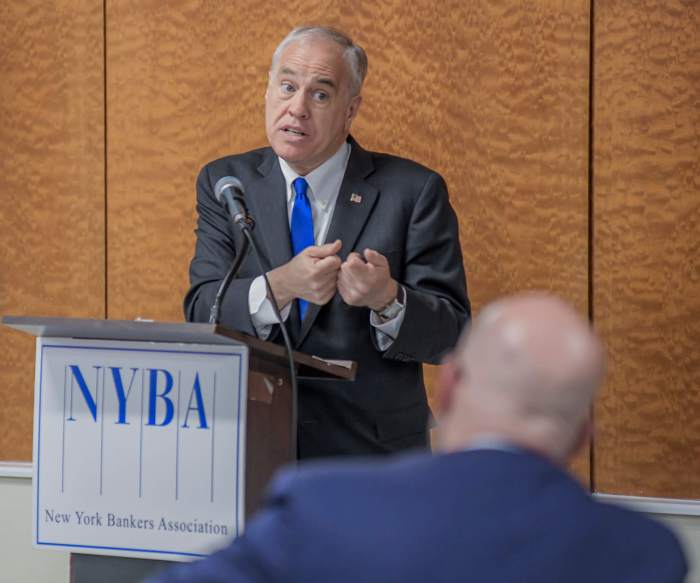It is the height of the tax season as this column goes to press, and an appropriate time to remind seniors about certain benefits to which they may be entitled under the Internal Revenue Code. Seniors and taxpayers in general, need to keep abreast of the changes in the tax laws if they are to take full advantage of the deductions and credits that are available to them. Recent changes and the increasing complexity of the tax code do little to help this.
One of the most basic deductions for seniors is medical expenses. These deductions are an important benefit for many taxpayers, but especially for the elderly population. These deductions are of even more significance when one takes into account the rise in medical costs combined with low and/or declining incomes for the elderly.
To take advantage of the deductions for medical costs, an individual must itemize the deductions on his/her tax return. Many seniors will be able to deduct medical expenses paid for themselves, spouses and dependents. Individuals are allowed to deduct all qualified costs (including dental expenses) that total in excess of 7.5 percent of their adjusted gross income. These deductions must be taken in the taxable year in which they were paid.
Once an individual’s total costs exceed 7.5 percent of his/her adjusted gross income, he/she generally is allowed to deduct expenses paid to alleviate or prevent a physical or mental illness. For instance, the cost of diagnosis, treatment, or prevention of disease and illness is deductible. In addition, the costs for prescription drugs are deductible. Other qualified medical costs include payments for hospital services, laboratory fees, qualified long-term care services, rehabilitative services and personal care and nursing services.
Of particular concern to seniors are the deductions allowed for the last three categories - long-term care services, nursing services and rehabilitative services. To qualify, these expenses must be incurred by a “chronically ill individual,” and further, they must be provided as part of a treatment plan approved by a health care professional. According to the Internal Revenue Service (the “IRS”), a chronically ill individual is someone who has difficulty performing at least two of the activities of daily living, (i.e., eating, toileting, transferring, bathing, dressing and continence). Severe dementia or Alzheimer’s disease will also qualify the patient as chronically ill if such condition creates a risk to his or her personal safety.
Another important category of deductions for seniors is the cost of long-term care insurance. Generally, long-term care insurance cannot be deducted for federal income tax purposes unless the cost of the insurance and all other qualified medical expenses exceed 7.5 percent of the individual’s adjusted gross income. Further, the amount of the premium that can be deducted for federal income tax purposes is limited to the following: for insured 40 years old or younger the deduction is limited to $290; for insured ages 41 – 50 the deduction is limited to $550; for insured ages 51 – 60 the deduction is limited to $1,110; for insured ages 61 – 70 the deduction is limited to $2,950; and for insured 71 years old or above the deduction is limited to $3,680.
New York State has taken a more aggressive stand and permits an individual to take a 20 percent credit of the premiums paid off his/her NYS income taxes. That means that if the long-term care insurance costs a New York State resident $5,000, then he/she will receive a credit for $1,000 off NYS income taxes that would have otherwise been owed.
Some additional medical deductions for seniors may include the cost of items such as dentures, prescription eyeglasses, contact lenses, hearing aids, crutches and wheelchairs. Finally, seniors may be able to deduct travel expenses incurred primarily to obtain medical care. However, seniors would be well advised to consult with a tax professional before claiming these costs as a deduction.
Clearly, seniors can gain quite a bit in savings if they understand and utilize the credits and deductions available to them. Seniors and taxpayers in general, should keep proper records and be able to document these costs. Particular care should be taken with cases where a home care attendant is involved. The IRS will require that such care is part of a plan prescribed by a health care professional.
Ronald A. Fatoullah, Esq. is the principal of Ronald Fatoullah & Associates, a law firm that concentrates in elder law, estate planning, Medicaid planning, guardianships, estate administration, trusts and wills. The firm has offices in Forest Hills, Great Neck, and Brooklyn, NY. Fatoullah has been named a “fellow” of the National Academy of Elder Law Attorneys and is a former member of its Board of Directors. He also serves on the Executive Committee of the Elder Law Section of the New York State Bar Association. Fatoullah has been certified as an Elder Law Attorney by the National Elder Law Foundation. Fatoullah currently chairs the Legal Committee of the Alzheimer’s Association, LI Chapter and is a co-founder of Senior Umbrella Network of Queens. The firm can be reached by calling 718-261-1700 or 516-466-4422, or toll free at 1-877-ELDER-LAW or 1-877-ESTATES.
* Certified as an Elder Law Attorney by the National Elder Law Foundation.

























